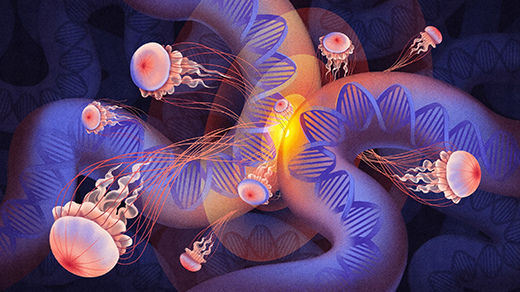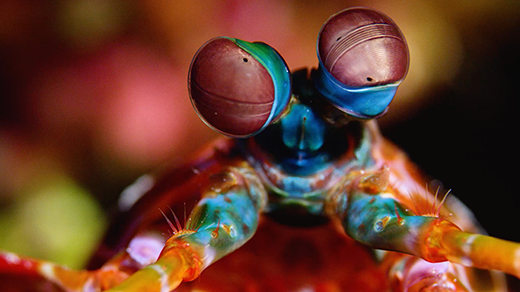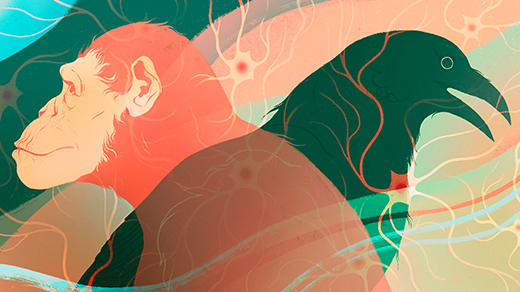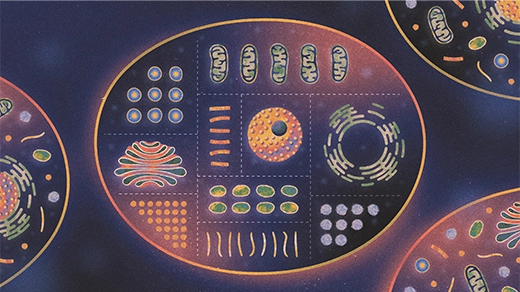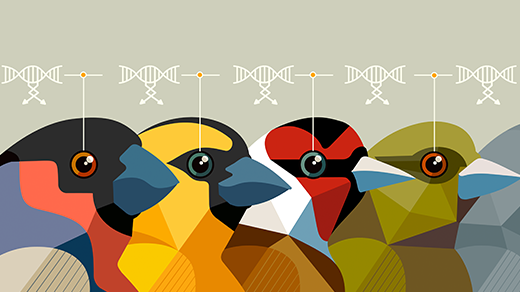What's up in
Evolutionary biology
Latest Articles
Loops of DNA Equipped Ancient Life To Become Complex
New work shows that physical folding of the genome to control genes located far away may have been an early evolutionary development.
The Sudden Surges That Forge Evolutionary Trees
An updated evolutionary model shows that living systems evolve in a split-and-hit-the-gas dynamic, where new lineages appear in sudden bursts rather than during a long marathon of gradual changes.
Do Beautiful Birds Have an Evolutionary Advantage?
Richard Prum explains why he thinks feathers and vibrant traits in birds evolved not solely for survival, but also through aesthetic choice.
When Did Nature Burst Into Vivid Color?
Scientists reconstructed 500 million years of evolutionary history to reveal which came first: colorful signals or the color vision needed to see them.
Intelligence Evolved at Least Twice in Vertebrate Animals
Complex neural pathways likely arose independently in birds and mammals, suggesting that vertebrates evolved intelligence multiple times.
Why Everything in the Universe Turns More Complex
A new suggestion that complexity increases over time, not just in living organisms but in the nonliving world, promises to rewrite notions of time and evolution.
All Life on Earth Today Descended From a Single Cell. Meet LUCA.
The clearest picture yet of our “last universal common ancestor” suggests it was a relatively complex organism living 4.2 billion years ago, a time long considered too harsh for life to flourish.
Meet the Eukaryote, the First Cell to Get Organized
All modern multicellular life — all life that any of us regularly see — is made of cells with a knack for compartmentalization. Recent discoveries are revealing how the first eukaryote got its start.
Why Is It So Hard to Define a Species?
The idea of a species is fundamental to the way that many people understand the structure of life on Earth. But ask 10 specialists how they define the concept and you might get 10 answers. In this episode, co-host Janna Levin speaks with evolutionary biologist Kevin de Queiroz about what makes defining and delineating species such a slippery process, and why it matters to our understanding of both evolution and conservation.
